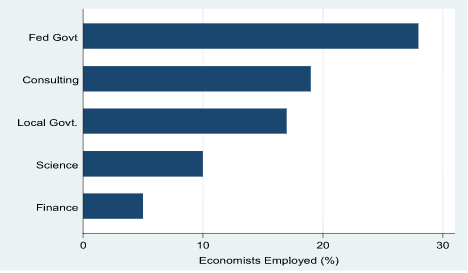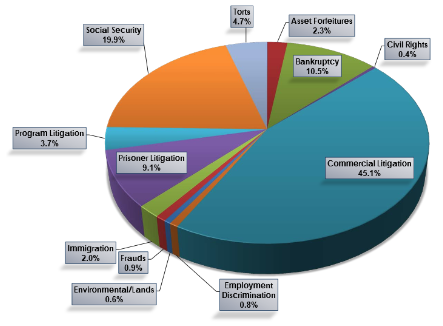Why Do Lawyers Need Economists?
Lawyers need results—and, often, these results depend on economic analysis. Economists are called into service by lawyers all the time, whether as consultants or witnesses, to answer important questions that can arise in a variety of court cases, such as: How much is a party in a divorce case really worth? What’s a fair calculation of long-term losses due to injury? What do certain financial records mean? What kind of strategy can be taken in shareholder litigation? Economists are expertly positioned to answer precisely these kinds of questions in a manner that can sway judges and juries.
Consider the ubiquity of economic issues in law. In 2013, 84% of successful plaintiffs in tort cases were awarded monetary damages. In many of these cases, economists could have added value by providing empirical bases for damages. As of 2015, roughly half of all divorces in the United States are contested. In intensely adversarial settings, economists can assist judges reach dispassionate conclusions about the fair allocation of marital resources. In an environmental of global merger and acquisition activity, there is immense scope for economists to provide expertise in corporate law. Finally, in response to the complexities of corporate law, courts are taking to appointing their own neutral economic experts.
 All of the signs indicate that lawyers need to deepen relationships with economic expert witnesses and consultants. Obtaining the correct economist’s services, whether in testimony or any other component of litigation, could be the difference between winning and losing.
All of the signs indicate that lawyers need to deepen relationships with economic expert witnesses and consultants. Obtaining the correct economist’s services, whether in testimony or any other component of litigation, could be the difference between winning and losing.
For economists, consulting is a lucrative profession. As of 2014, management, scientific, and professional consulting services employed 19% of all economists in the United States 1 . There is thus a large pool of economists for lawyers to draw upon as expert witnesses and consultants.
1 Note: Original figure based on data from Bureau of Labor Statistics (http://www.bls.gov/ooh/Life-Physical-and-Social-Science/Economists.htm#tab-3)
Can Economics Drive Legal Change?
 Many fundamental changes in the law are being driven by economics. Consider the spate of music- sharing lawsuits that emerged in the wake of Napster. The digital duplication of music drove down the value of music owners’ intellectual property, a pattern that has subsequently observed with films.
Many fundamental changes in the law are being driven by economics. Consider the spate of music- sharing lawsuits that emerged in the wake of Napster. The digital duplication of music drove down the value of music owners’ intellectual property, a pattern that has subsequently observed with films.
Economic pressures on certain industries nearly always alter the legal landscape. For lawyers who work in the fields of entertainment and intellectual property in particular, underlying the relationship between economic and litigation can confer an analytical and strategic advantage. Lawyers with an appreciation of the relationship between economic changes and trends in litigation can, for example, be more adept in identifying expert economic witnesses or in challenging economic assumptions put forward in court. The death of the free music-sharing industry was partly due to the ability of lawyers, working in concern with economic witnesses, to contest defendants’ assumptions that music sharing did not have a significant economic impact on intellectual property holders.
For any lawyers, having a basic understanding of the economic impact of changes in technology and markets might represent the difference between having a firm grasp of a case and not understanding what is truly at stake.
Note that, in 2013, most civil lawsuits had origins in domains in which economics is important. In fact, from 2012 to 2013, commercial litigation arose from around 39% to over 45% of all U.S. civil suits 2 . These data are another means of understanding the rising importance of economics in the world of litigation, given the role that economic witnesses and consultants can play in commercial litigation.
